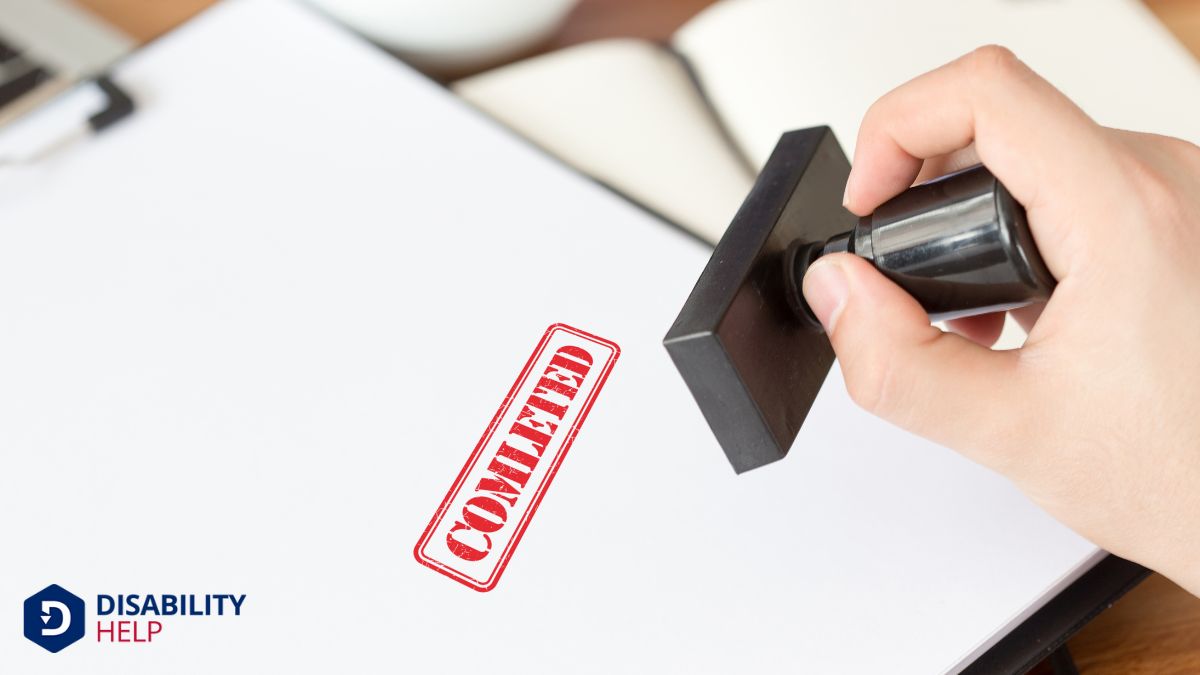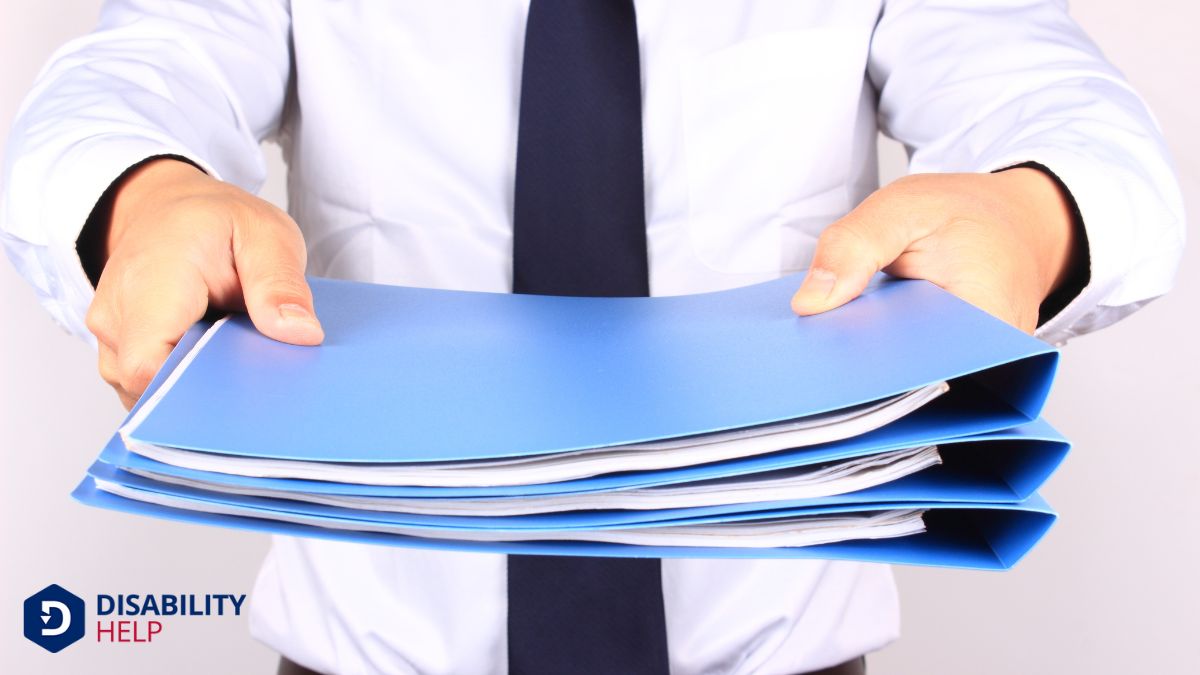Securing veteran disability benefitsFinancial assistance provided to individuals who are unable to work due to a disability, such as Soc... requires a strategic approach. We should file our claim early to establish an effective date and potentially receive more back pay. Providing complete documentation and obtaining medical opinions will strengthen our case. Let's not forget to claim secondary conditions linked to our primary ones and focus on submitting only relevant information. Understanding the benefits award process is vital, and if our claim gets denied, filing for an appeal with additional information can make a significant difference. Discovering these steps in detail can greatly enhance our chances of successfully maneuvering the veteran disability benefits process.
Key Takeaways
- File your claim early to establish an effective date and increase your chances of back pay.
- Provide complete and thorough documentation to strengthen your case and prove eligibility.
- Obtain expert medical opinions to support the connection between your service and conditions.
- Claim secondary conditions linked to your primary disabilities for comprehensive coverage.
- Submit relevant and specific medical records to streamline the claims process and avoid delays.
File Your Claim Early
Filing your claim promptly is crucial for securing your veteran disability benefits. When we file without delay, we set an early effective date, which determines when our benefits become available and how much back pay we might receive. The sooner we start, the greater our chances of obtaining more back pay, as the effective date is earlier.
The Department of Veterans Affairs (VA)A U.S. government agency that provides services and benefits to military veterans, including those w... assists us in gathering necessary evidence, such as medical records and service connection details. However, if we procrastinate, the Duty to Assist rule mightn't cover all the required documentation efficiently, potentially impacting our back pay and overall claim outcome. Filing promptly ensures we avoid these pitfalls and navigate the VA system more smoothly.
Moreover, timely filing helps us present strong medical evidence to support our veterans' disability claims. This includes documenting any injuries or conditions linked to our military service. If our initial claim gets denied, the early filing date can be advantageous during the appeals process, ensuring we don't miss out on entitled benefits.
Provide Complete Documentation

Thorough documentation is our key to a successful veteran disability benefits claim. When we submit our VA disability claims, we've got to make sure we provide complete and thorough evidence. Inadequate documentation often leads to initial application denials, making the VA process even more burdensome. By organizing our forms and evidence well, we're not only proving our eligibility but also the service-related cause and severity of our disabilities.
Let's face it; the VA process can be challenging. That's why our documentation needs to be meticulously detailed and organized. Complete documentation helps the VA examiner understand the full scope of our condition, which is crucial for a successful claim.
Whether it's medical records, service records, or personal statements, each piece of evidence we submit plays an essential role in strengthening our case.
We can't afford to overlook any detail. The more thorough our documentation, the better our chances of proving our eligibility and securing the benefits we deserve. So, let's take the time to gather and organize all necessary evidence. Doing so will make it easier for the VA examiner to make an informed decision, ultimately leading to a successful claim.
Obtain Medical Opinions
Securing expert medical opinions can greatly enhance our veteran disability benefits claim. Nexus letters, written by qualified medical professionals, are essential for establishing the connection between our in-service events and current medical conditions. These letters provide the vital link that ties our service-connected disabilities directly to our time in the military, making it easier for the VA to understand the origins of our ailments.
In addition to nexus letters, seeking additional medical opinions can be invaluable. Often, the insights gained from these opinions go beyond what's captured in the standard Compensation and Pension (C&P) examinations.
Expert medical opinions can offer a deeper understanding or even challenge the findings of VA examiners, potentially leading to a more accurate assessment of our conditions.
Claim Secondary Conditions
Having secured solid medical opinions to support our primary conditions, we should now focus on claiming secondary conditions. Secondary disabilities are those directly connected to the service-related conditions we already have. Over time, our primary conditions can lead to the development of various secondary disabilities. It's important to file for secondary conditions alongside our primary ones to ensure we receive thorough coverage.
When filing claims, providing detailed information about all our secondary conditions strengthens our overall claim. We need to clearly demonstrate the interconnectedness of disabilities, showing how our secondary conditions stem from our primary ones. This linking of secondary conditions to primary conditions is essential for the VA to recognize the full extent of our service-related conditions.
Submit Relevant Information

When submitting our claims, it's crucial to focus solely on pertinent medical records. We should make sure that the documentation we provide is directly related to our claimed condition. By doing this, we avoid overwhelming VA examiners with unnecessary paperwork, helping them concentrate on the most significant details.
Pertinent medical records that support the service connection and the severity of our disability are crucial. These records should include specific evidence that directly supports the claimed condition. This approach not only strengthens our case but also eliminates delays in the claims process. Submitting only the necessary documentation streamlines the process and guarantees that our claim is reviewed more efficiently.
We need to concentrate on providing relevant evidence. This means including medical records and other documents that clearly support our claimed condition and its connection to our service. By focusing on the necessary documentation, we make it easier for VA examiners to understand and process our claims.
Understand the Benefit Award Process
To effectively navigate the VA benefit award process, understanding the key components that determine eligibility is essential. The VA awards compensation based on three main elements: a diagnosed condition, an in-service event, and a nexus between the two. Knowing what the VA looks for in determining disability benefits enhances our chances of a successful claim.
Key factors to focus on include:
- Service connection: Proving that our condition is directly related to our military service.
- Medical evidence: Providing comprehensive medical records that document the severity of the condition.
- Nexus letters: Obtaining professional medical opinions that link our diagnosed condition to our service.
- Claims process: Familiarize ourselves with the VA benefit award system's detailed and lengthy procedure.
File for Appeals
Filing an appeal can feel overwhelming, but it's an essential step if our initial claim is denied. Denial at the initial review stage doesn't mean the end of the claim process. The appeals process, while challenging, often leads to successful outcomes for veterans. By providing additional information and evidence, we can greatly enhance our chances of approval during this stage.
When preparing our appeal, consulting with VA disability benefits attorneys can be incredibly advantageous. These professionals know the ins and outs of the appeals process and can help us organize and strengthen our case. They can guide us in gathering the necessary evidence and additional information that can make our appeal more compelling.
Denied claims need to be reconsidered, and the goal is to get them approved. The appeals process is vital to achieving this. We should be prepared to present new evidence and clarify any misunderstandings from our initial claim. By methodically addressing the reasons for denial, we can make a stronger case for why our disability benefits should be granted.
Frequently Asked Questions
What Are the Best Things to Claim for VA Disability?
We should claim service-connected conditions impacting our daily life and work abilities. Include secondary conditions linked to primary disabilities, and validate all medical evidence and documentation to establish the connection between our military service and current disabilities.
How Do I Get the Most Out of My VA Disability?
To get the most out of our VA disability, we should file promptly, provide complete documentation, get medical opinions, claim secondary conditions, and understand the process. If needed, don't hesitate to file for appeals to maximize benefits.
What Is the Easiest Way to Get 100% VA Disability?
The easiest way to get 100% VA disability is by qualifying for TDIU. We need to demonstrate we're unable to work due to service-connected disabilities. Consulting a VA disability attorney can simplify the application process.
What Is the 70-40 Rule for VA Disability?
We should understand the 70-40 rule for VA disability: it requires a 70% combined rating with one condition rated at least 40%. This rule helps us qualify for higher compensation rates and possibly Individual Unemployability benefits.
Conclusion
In our journey to secure veteran disability benefits, we've learned the significance of filing claims early and providing complete documentation. By obtaining medical opinions and claiming secondary conditions, we can strengthen our cases. It's vital to submit all relevant information and comprehend the benefit award process. If necessary, don't hesitate to file for appeals. Together, we can navigate this process and guarantee we receive the benefits we've earned and deserve. Stay persistent and proactive!






